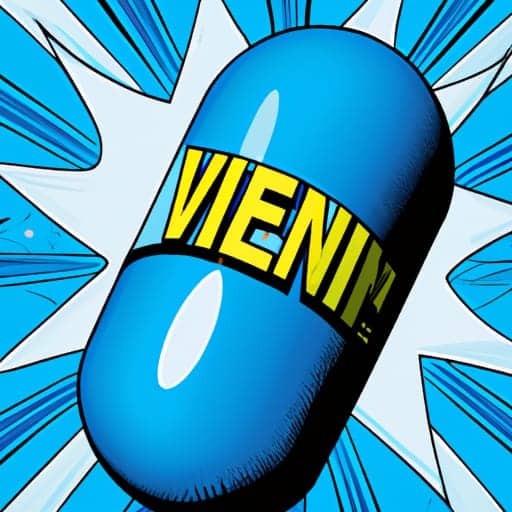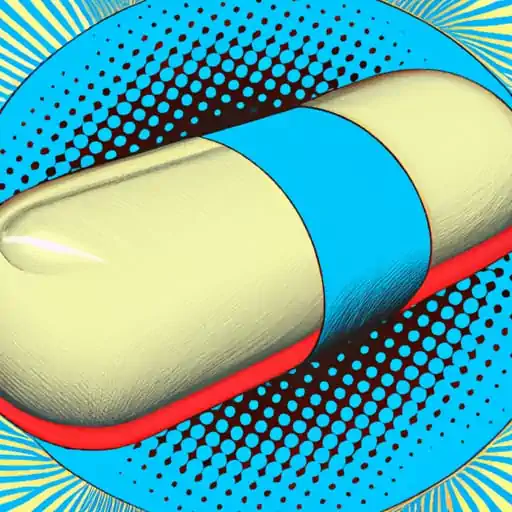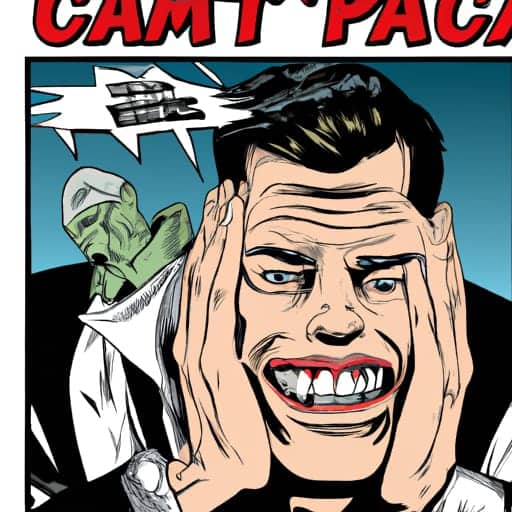Is Venlafaxine Good For Anxiety and Depression? The Answer Is Yes!

Anxiety and depression are two major mental health disorders that can severely affect your life. If you’re struggling with either condition, there’s a good chance that Venlafaxine may be a helpful medication for you.
This drug is licensed to treat anxiety and major depressive disorder, and it has been proven to be effective in treating both conditions.
However, like all medications, there are some side effects that you should be aware of. In this article, we’ll go over the basics of Venlafaxine, including its class, history, what it treats, withdrawal symptoms, pregnancy-related concerns, and more.
After reading this article, you’ll have a better idea whether Venlafaxine is a good medication for you!
Brand Names For Venlafaxine
It’s important to know that not all brands of venlafaxine are the same, so you need to choose one that has been specifically approved by your country’s drug licensing body, such as the FDA or the BNF in the UK.
There are many brand names for venlafaxine, including are Vensir, Vencarm, Venlalix, Efexor, Venlablue. Effexor XR, Eflornithine, and Venlorf XL.
ll of these brands have the same effects as venlafaxine – they treat anxiety and depression. Keep in mind that not all brands of venlafaxine are available in all countries – check with your pharmacy before taking this medication!
The History of Venlafaxine
Venlafaxine (Effexor) is a medication that was first approved by the US Food and Drug Administration (FDA) in 1993.
Venlafaxine was approved for medical use in the United States in 1993. It is available as a generic medication. In 2020, it was the 43rd most commonly prescribed medication in the United States, with over 15 million prescriptions.
The first line of medication is to use one of the older serotonin reuptake inhibitors, like fluoxetine. If fluoxetine or another SSRI doesn’t work, then doctors may then consider an SNRI like venlafaxine or duloxetine.
It’s been used to treat anxiety and depression for nearly two decades now, and it has proven to be effective. The most common benefit of taking venlafaxine is its ability to improve moods quickly—within just days or weeks rather than months or years, like some other antidepressant medications. This rapid effect makes it one of the most popular medications to treat depression today.
Before Pfizer bought the company in 2009, Wyeth Pharmaceuticals Inc. made both the original and the extended-release versions. Today, Pfizer only sells the long-acting version, which is also approved to treat panic disorder, social anxiety disorder, and generalised anxiety disorder.
Interestingly, pure norepinephrine reuptake inhibitors, such as reboxetine and atomoxetine, have been unsuccessful as antidepressants, while a mixed serotonin-norepinephrine reuptake inhibitor like venlafaxine is very effective.
What Class of Drug Is Venlafaxine?
Venlafaxine is a type of antidepressant called an SNRI, which stands for a serotonin-norepinephrine reuptake inhibitor. An SNRI works by increasing the amount of serotonin and noradrenaline (norepinephrine) in the brain.
Norepinephrine, which is also known as noradrenaline, is a hormone that is made by the adrenal glands. It is also a neurotransmitter, which is a chemical that sends messages between nerve endings in the body. Norepinephrine is made in the adrenal medulla, which is the middle part of the two adrenal glands. Also, adrenaline is made in the adrenal medulla (adrenaline is also known as epinephrine).
Serotonin is a neurotransmitter that is responsible for mood regulation, and norepinephrine is a hormone that helps to regulate blood pressure, heart rate and energy levels. When these receptors are activated, venlafaxine helps to relieve symptoms of anxiety and depression.
What is Venlafaxine Licensed To Treat?
Venlafaxine Licensed Treatments in the USA
Venlafaxine is approved to treat major depressive disorder (MDD), generalised anxiety disorder (GAD), panic disorder, and social anxiety disorder (social phobia).
Most of the time, venlafaxine takes 4 to 6 weeks to fully work, but you should feel better after 1 to 2 weeks. It is available as a capsule or a tablet.
You may get an initial activation syndrome which can include restlessness, agitation, initial trouble sleeping (insomnia), loss of appetite. Sadly, some people cannot tolerate this usually short-lasting initial period, but it usually passes after several days.
Venlafaxine Licensed Treatments in the UK
Major Depression
Instant Release Version:
Generally, start on a low dose to see whether it is tolerated.
Adults: Take 75 mg twice a day at first, and if needed, increase the dose up to 375 mg per day. If the dose needs to be increased, it should be done at least 2 weeks apart, but some patients may need to go faster. The maximum dose per day is 375 mg.
Modified Release Version:
Adults: Start with 75 mg once a day, and if needed, increase the dose up to 375 mg once a day. If the dose needs to be increased, it should be done at least every two weeks, though some patients may need to go faster. The maximum dose per day is 375 mg.
Generalised anxiety disorder
Modified Release Version:
Adults should take 75 mg once a day. If needed, they can take up to 225 mg once a day, but they should wait at least two weeks between dose increases. The most they can take in a day is 225 mg.
Social anxiety disorder (social Phobia)
Modified Release Version:
Adults should take 75 mg once a day. There is no evidence that higher doses are more effective, but the dose can be increased up to 225 mg once a day if needed. If the dose needs to be increased, it should only be done every two weeks. The maximum dose per day is 225 mg.
Panic disorder
Modified-release preparations by mouth:
At first, 37.5 mg once a day for 7 days, then 75 mg once a day, and if needed, up to 225 mg once a day. The dose should be increased at least every 2 weeks; the most you can take in a day is 225 mg.
Menopausal symptoms
It is used to help with hot flushes (hot flashes in the USA), particularly in women with breast cancer
Modified-release preparations by mouth: Adults should take 37.5 mg once a day for one week, then 75 mg once a day if they need to.
There are other off-label uses.
Half Life of Venlafaxine
Extended-release versions of venlafaxine have an absorption half-life of 7.5 to 13.9 hours, so half of the drug will have been absorbed by the body in that time, and an elimination half-life of 4 to 7 hours, just like immediate-release venlafaxine.
This means that the venlafaxine will be out of your system in approximately 14 hours
Taking Venlafaxine When You Have Physical Health Problems
A full medical history should be taken by the healthcare professional prescribing for you. Each person gets a different dose from their doctor. Do not change the amount you take without talking to your doctor or pharmacist first.
In people with mild-to-moderate liver failure, also called hepatic impairment, the medication guide says doctors should cut the total daily dose by 50%. In some patients, it may be necessary to cut the dose by over 50%.
People who have kidney problems should also take a lower dose. The medication guide says that doctors should cut the dose by 25% for people who have had kidney failure in the past and by 50% for people who are getting hemodialysis.
When giving venlafaxine to people with narrow-angle glaucoma, care should be taken, and ocular pressure should be checked.
Venlafaxine can make your heart beat faster or cause an irregular heartbeat (arrhythmia). If you are already taking medicine for your heart, your doctor may not think it will be helpful for you to take Venlafaxine.
People with bipolar disorder should not take venlafaxine without specific discussions and monitoring from a psychiatrist as it can push them into mania.
Side Effects of Venlafaxine
Some of the worst and sadly common side effects of venlafaxine are related to sexual dysfunction. These include not being interested in sex, having trouble getting aroused, and not being able to get an orgasm. In clinical trials, people also often report feeling sick (nausea), having a dry mouth, having trouble going to the bathroom, and sweating.
Another side effect that is rare but hard to tolerate is that some people develop skin rashes. Diarrhea and constipation can happen, but are rarer. The same is true of actual vomiting, as opposed to nausea.
Venlafaxine may cause high blood pressure, or at least make high blood pressure worse in someone that already has it.
Women who are pregnant or nursing, children, teenagers, and young adults, on the other hand, can have more serious side effects from Effexor.
Venlafaxine isn’t supposed to be used for children, and women who are pregnant or nursing are told not to take it without talking to their doctor about the risks.
Babies whose mothers took the drug during the third trimester of pregnancy may have problems with the fetus being underweight. In rare cases, there are risks of malformations, but these are very rare.
Take precautions and speak to your doctor. Remember, untreated mental health problems in pregnancy and post-natal depression are serious concerns and the risks need to be weighed up and balanced out.
The drug will get into breast milk and may effect a baby who is being fed.
A rare but serious and documented side effect is a “black box” warning about suicidal thoughts in people under 25.
There is a caution about hallucinations with venlafaxine, but the research suggests this is extremely rare and I have never come across it in all my years working with and prescribing venlafaxine.
If you experience ongoing adverse effects, you should stop taking the venlafaxine.

Overdose With Venlafaxine
An overdose of venlafaxine can kill you.
Seizures and dangerous effects on heart rhythm that can be fatal are likely.
Large doses of venlafaxine can cause severe, reversible cardiomyopathy that needs life support outside of the body.
If you take an overdose either intentionally or unintentionally, please seek urgent medical attention. It is a life-threatening emergency.
Withdrawal From Venlafaxine
Don’t stop taking venlafaxine unless your doctor tells you to. Stopping the drug suddenly or lowering the dose too quickly can cause severe withdrawal symptoms, such as extreme fatigue, confusion, dizziness, headaches, and electrical shock-like feelings.
These symptoms can vary from person to person, but can generally be mild and last for a few days. However, if they become more severe or continue for longer than a few days, it is important to contact your doctor. In some cases, withdrawal may lead to irritability, headaches, or crying spells. If this is the case for you, it is important to talk to your doctor about the symptoms so that a withdrawal plan can be put in place.
Should I Take Venlafaxine in Pregnancy?
If you want to get pregnant, let your doctor know so that your medications can be handled in the best way. People with Depression who want to have a child have to make important choices.
If Depression isn’t treated, there are risks for both the mother and the child. It is important to talk to your doctor and other caregivers about the risks and benefits of treatment. If a woman takes antidepressants between weeks 13 and the end of her pregnancy (during the second and third trimesters), the baby could be born before it is finished growing (before 37 weeks).
Since venlafaxine gets into breast milk, women who are breastfeeding should be careful, and may want to avoid.
Women who are pregnant should also note that Venlafaxine can cause birth defects in their children. If you’re considering taking Venlafaxine during pregnancy, be sure to talk to your doctor first for advice on dosage and potential side effects.
How Does Venlafaxine Interact With Other Medications?
Mixing venlafaxine with therapies that also affect serotonin levels, like other antidepressants, linezolid, lithium, tramadol, and St. John’s wort, can cause a condition called serotonin syndrome, which raises blood pressure, heart rate, and body temperature.
Tell your doctor about all the prescription and over-the-counter medicines and supplements you have taken or plan to take. This includes aspirin, migraine medicines, amphetamines, antipsychotics, and blood thinners.
Don’t start taking venlafaxine if you’ve been taking a monoamine oxidase inhibitor (MAOIs), which are old-fashioned types of antidepressant, now rarely prescribed, for the past two weeks, and don’t start taking a monoamine oxidase inhibitor if you’ve been taking venlafaxine for the past week.
Taking the drug with blood thinners or nonsteroidal anti-inflammatory (NSAID) drugs like Advil and Motrin may increase the risk of bleeding side effects. The medication guide also says that people taking the drug shouldn’t drink alcohol.
Conclusion: Is Venlafaxine Good For Anxiety and Depression For You?
After reading this blog, you know Venlafaxine is a good medication for anxiety and depression. It has a long history of being used to treat these conditions, and has been licensed to do so by the FDA.
Withdrawal from Venlafaxine is not harmful (though can be unpleasant) and should only last for a few days.
If you are pregnant, talk to your doctor about taking Venlafaxine. It is also important to know that Venlafaxine can interact with other medications, so be sure to discuss any other medications you are taking with your doctor.
My experience is that if people can tolerate the alerting effects of the venlafaxine and they do not get side effects, it is an excellent antidepressant—one of the best.
The problem is that initially there seems to be an increase in adrenalin activity that feels like anxiety. This will nearly always pass if you can tolerate it over the first days.
If it goes on for over four or five days, this might be a sign that it will not pass and venlafaxine is not for you.
In the end, is Venlafaxine a good medication for you? The answer is you should definitely explore it.
Related Articles To This One
Amitryptiline – What it is, What it does, and How it works
5 Most Effective Antidepressants for Anxiety and Depression (and 3 you should avoid)






